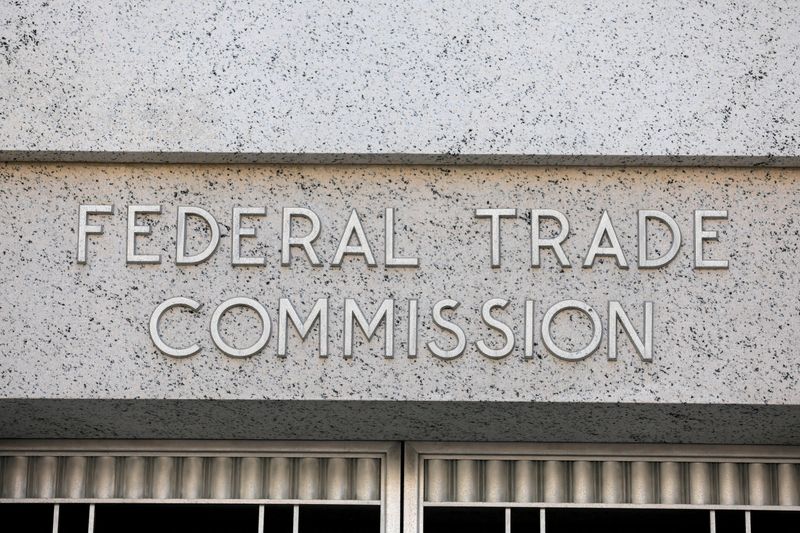
© Reuters. FILE PHOTO: Signage is seen at the Federal Trade Commission headquarters in Washington, D.C., U.S., August 29, 2020. REUTERS/Andrew Kelly/File Photo
By Mike Scarcella
(Reuters) – The U.S. Federal Trade Commission would face hurdles in any appeal of a court’s order on Tuesday that said Microsoft (NASDAQ:) could move forward with its $69 billion acquisition of “Call of Duty” maker Activision Blizzard (NASDAQ:), legal experts who specialize in competition law said.
In her ruling, U.S. District Judge Jacqueline Scott Corley said the FTC failed to meet its legal burden to put a preliminary block on the deal, which would become the largest-ever in the gaming industry.
She gave the FTC until Friday to seek an order in the San Francisco-based 9th U.S. Circuit Court of Appeals to pause her decision. The proposed deal has a July 18 termination date.
The FTC had no immediate comment on whether it would appeal and what arguments it might make before a three-judge panel. Corley issued her ruling after an evidentiary hearing at which Microsoft and Activision executives testified.
“A lot of the power of the opinion on appeal comes down to an analysis of the factual record,” said antitrust scholar Daniel Crane of University of Michigan Law School.
Corley found there was no record contradicting Microsoft’s vow that it would not make “Call of Duty” exclusive to the company’s Xbox platform.
“The FTC may have difficulty on appeal establishing that fact – without which the case as they framed it goes away,” Crane said.
Appeals courts generally defer to U.S. judges on factual records, said antitrust lawyer Luke Hasskamp. The facts in the case “seem to all break in Microsoft and Activision’s way,” he said.
In her 53-page order, Corley said it was not enough for the FTC to argue that “a merger might lessen competition – the FTC must show the merger will probably substantially lessen competition.”
Several legal scholars questioned that standard, saying that the U.S. antitrust law required the FTC to prove the proposed deal “may” harm competition, not that it “will.”
University of Baltimore law school professor Robert Lande said “‘will probably’ is not the same as ‘may'” and the judge got the standard wrong.
In May, Corley ruled against private video gamers who sued Microsoft to block the Activision deal.
Lawyers for the private video gamers have appealed Corley’s denial of a preliminary injunction.
Plaintiffs’ attorney Joseph Alioto on Tuesday asked the 9th Circuit to rule by Friday on the gamers’ bid for a temporary injunction blocking Microsoft’s acquisition of Activision.
Microsoft was “not competing for markets,” Alioto said. “They are buying the markets.”
A trial before an administrative law judge at the FTC begins on Aug. 2.





